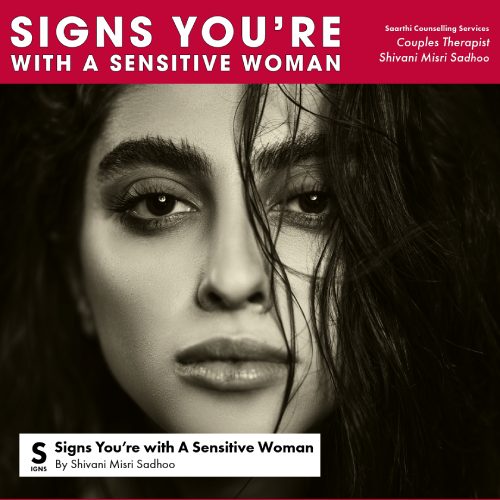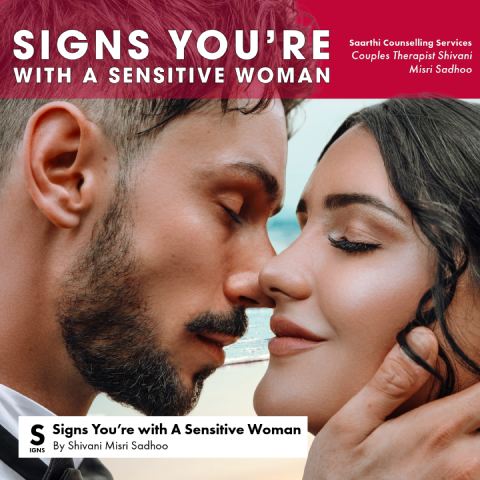Eminent Couples Counselor Shivani Misri Sadhoo shares Signs that Your Partner is a Sensitive Woman
Emotional sensitivity is a trait that could greatly enhance the depth and richness of relationships. Sensitive women tend to be compassionate, empathetic, and attuned to the emotions of those around them. If you’re in a relationship with a sensitive woman, you’re likely experiencing a unique and rewarding connection. In this article, eminent marriage counsellor Shivani Misri Sadhoo shares ten signs that indicate you’re with a sensitive woman.
What are signs that your Partner is a sensitive Woman?
According to Shivani, there are many major or subtle signs, but here she is talking exclusively about the 10 signs that you need to check for. They are:
She is Empathetic
A sensitive woman has a strong capacity for empathy. She can deeply understand and share the feelings of others, making her an excellent listener and a supportive partner. She genuinely cares about your emotional well-being and will be there for you in times of need.
She Notices the Little Things
Sensitive women have a knack for noticing subtle details and nuances that others might overlook. Whether it’s a change in your tone of voice or a small gesture, she is attentive to your needs and emotions.
She Values Open Communication
Communication is vital in any relationship, and a sensitive woman understands this well. She encourages open and honest conversations, making it easier for both of you to express your thoughts, feelings, and concerns without judgment.
She is Considerate of Your Feelings
Sensitive women are considerate and thoughtful partners. They take your feelings into account when making decisions and are careful not to hurt or offend you. They strive to create a safe and nurturing environment for the relationship to flourish.
She Expresses Her Emotions Freely
While some may view emotional expression as a weakness, sensitive women embrace their feelings and express them openly. They are in touch with their emotions and encourage you to do the same, creating a space where vulnerability is celebrated.
She Values Connection
Sensitive women often prioritize emotional connection in their relationships. They seek to build deep and meaningful bonds with their partners, making them loyal and devoted companions.
She is Supportive
Whether you’re pursuing your dreams or facing challenges, a sensitive woman will stand by your side. She provides unwavering support and encouragement, helping you achieve your goals and navigate life’s ups and downs.
She is Creative and Artistic
Many sensitive women have a creative and artistic side. They may enjoy pursuits like writing, painting, music, or other forms of self-expression. This creativity often enriches the relationship with depth and passion.
She is Attuned to Nonverbal Cues
Sensitive women are skilled at reading nonverbal cues, such as body language and facial expressions. This ability allows them to understand your emotions even when you may not be verbally expressing them.
She Values Harmony and Peace
Sensitive women often seek harmony and peace in their relationships. They are willing to compromise and work through conflicts in a constructive and empathetic manner, making the relationship more resilient and fulfilling.
Being in a relationship with a sensitive woman can be a rewarding experience. Her empathy, emotional depth, and attentiveness can enhance the connection you share and bring a sense of harmony and support to your partnership.
By recognizing these signs, you can better appreciate and nurture the unique qualities that a sensitive woman brings to your life, ultimately leading to a stronger and more fulfilling relationship.

